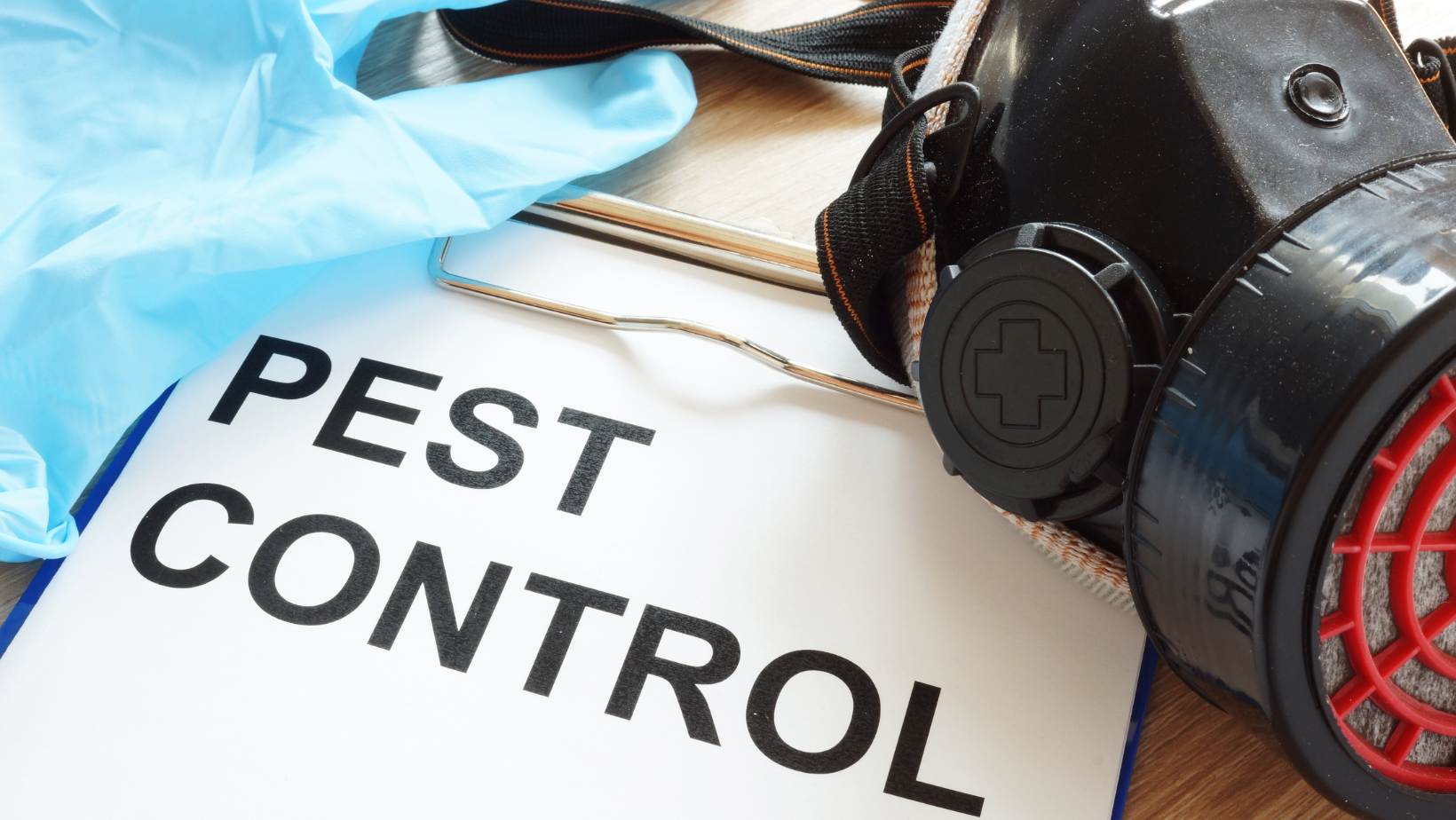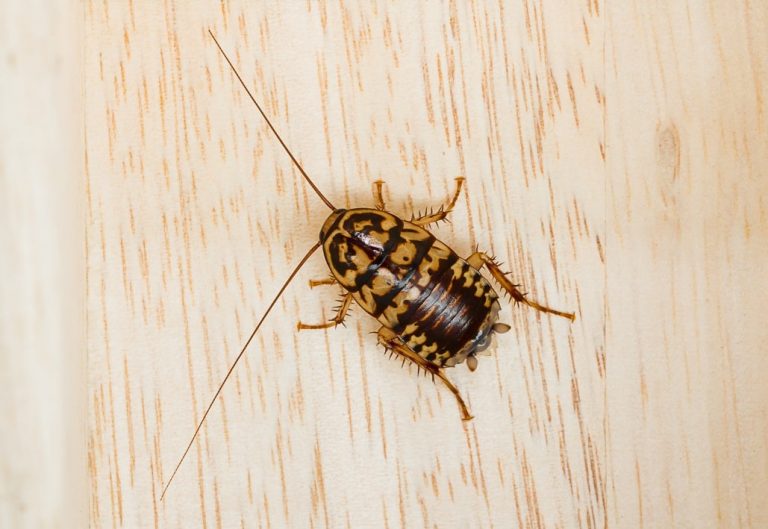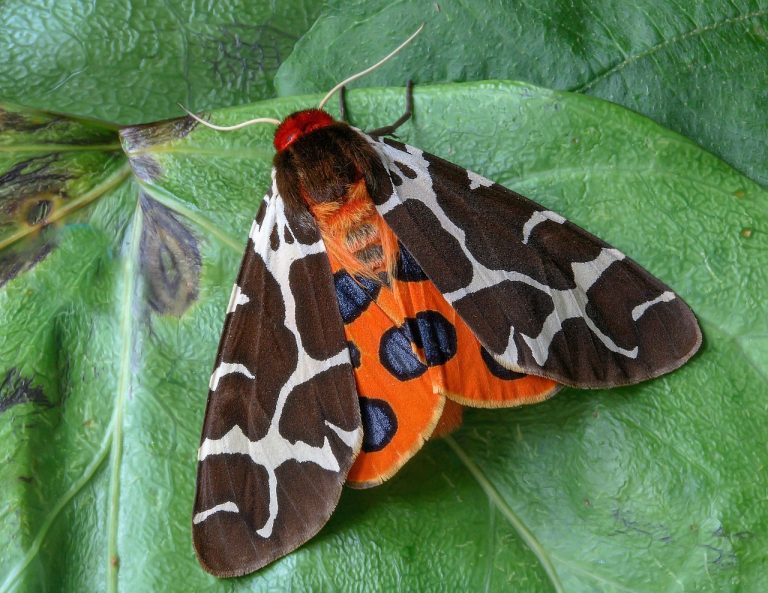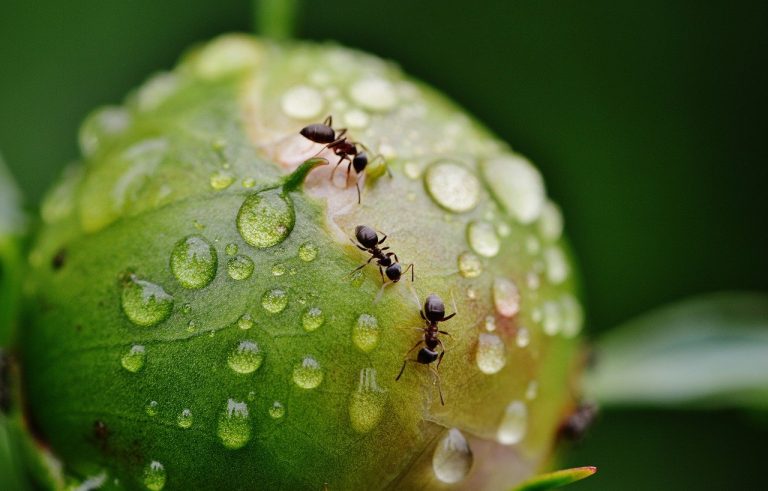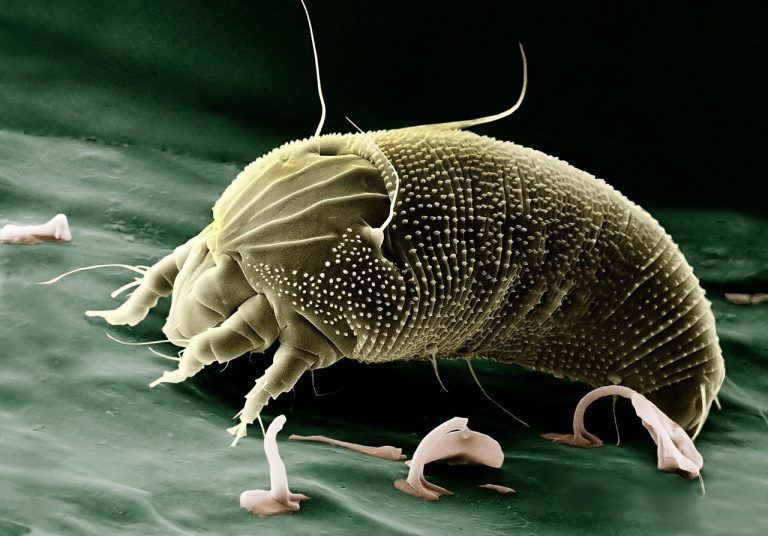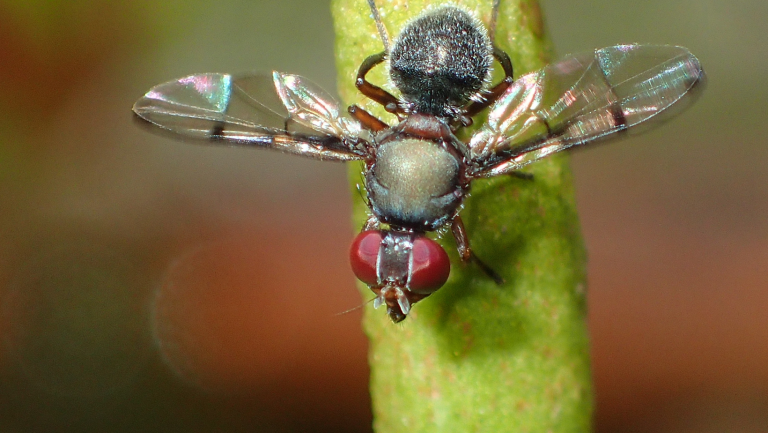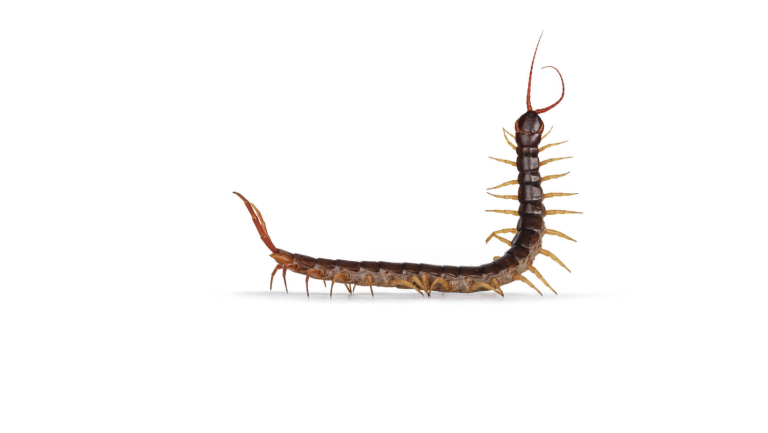What is Pest Control?
A pest is a damaging bug or other insects that prey on crops, food, or animals; it is also any living entity that competes for survival with humans, livestock, or plants.
Pesticides are frequently used in our homes as a primary method of resolving issues. Pesticides are used to destroy pests and to keep their growth under control.
The presence of pests in our close surroundings will have a varied effect on each individual. To choose the best pest control strategy, you must first identify the pests. Pest control is necessary to prevent pests from having a detrimental effect on human existence.
It will be necessary to use the services of a pest control company to overcome the risk effectively. People may choose the improper control approach, the wrong pesticide, treat it too early, or use a huge quantity of chemicals at a time. All these problems emerge if we do not have a sufficient understanding of pests and pesticide control strategies.
Pest control is the process of removing or managing unwanted pests. Rodents, cockroaches, termites, bed bugs, deadly spiders, and other vermin are just a few of the pests that pest control removes. They fully understand that major issues, including health issues, are common when these insects are pervasive.
There are various pest control firms in your neighborhood. Approaching them for assistance in resolving your pest infestation is a smart choice. It will assist in controlling pests from the area without causing harm to the host.
Pest control service centers maintain a clean environment that is safe for you and your family’s health. They eliminate the risks without the use of chemicals and harmful materials. In addition, using pest control services minimizes diseases and health difficulties caused by bugs.
What Is Included In Pest Control?
A pest control service uses the most effective pest management techniques for your home. Before arriving at the extermination site, they conduct a thorough inspection of your home, seeking the cause of the infestation.
As soon as they spot the problem, they eliminate the harmful pests, preventing them from spreading further. They must allow time for any inquiries you may have and gladly resolve each issue and query to ensure that the work is completed. You must move in and out of your house for a complete inspection.
A checklist of the procedures a pest control team performs upon their arrival at your location.
- The team must first inspect the entry points. The pest control professionals will examine the pipes, doors, windows, and attics for potential entry points for pests.
- They will thoroughly inspect the entire house, check for wet places, and identify potential insect infestation sources. Pests prefer moist environments because they provide an ideal breeding site.
- They come prepared with cutting-edge techniques and equipment that destroy any pests that may be crawling throughout your home. They will utilize the most effective pest-control strategies to rid your home of the annoyance that is an insect infestation.
A pest control professional discovers, controls, and destroys pests and vermin. This will often involve the following:
- Advise customers on preventive actions and appropriate control mechanisms.
- Regular inspection of customer premises and reporting of the state of the infestation.
- Organizing and implementing a treatment plan to manage and remove pests using pest control tools or chemicals.
- Reporting on all inspections, including a detailed description of the treatment program and chemical products used on the premises to ensure public health and safety.
How Long Does Pest Control Take?
Pest control requires varying time intervals depending on the situation. Some bugs take longer than others to eliminate. While rodent pest treatment may require numerous visits, and pest control often takes a few hours. Larger residences or buildings would also take more time and effort.
If you realize that you have problems with pests, determine what you can do on your own to solve the situation. If you can’t do it yourself, hiring a professional pest control service is a better option.
Pest treatments necessitate varying pest control intervals. Some pests require frequent treatments due to their fast occurrence, whereas others do not.
Several factors influence the duration of time that pest control treatment will last. They include the following:
- The type of pest
- The surroundings (desert, mountains, etc.)
- Infestation severity
- The efficacy of pest control measures
Pest management usually involves the use of insecticides and other non-toxic agents. In addition, different pests frequently necessitate special treatments and duration.
While some treatments are completed in a few hours, others take considerably longer. Based on the extent and type of treatment required, some treatments may take 30 minutes or up to 8 hours. The following is a list of a few pests and the recommended duration of their pest control treatment.
- Ant, cockroach, and other common insect prevention treatment: 15-30 minutes
- Ant or cockroach infestations: 90–120 minutes or longer, based on the intensity of the infestation
- Termites heat treatment: 4 or more hours
- Rodent removal: approximately up to 15 hours, although it varies based on the infestation and frequently takes days.
After How Long Does Pest Control Start Working?
Although there is no exact timeline, you should consider several factors. First, hiring a pest control service truly depends on the intensity of your infestation and the kinds of bugs involved.
It may take several weeks or months for cockroaches and rodents to disappear. However, the effects can be nearly instantaneous for other bugs and small pests, like spiders, ants, and certain kinds of mice.
In most situations, a considerable reduction in insect activity occurs within one to two days. However, the exact timing varies on the pest and the products used to obtain the best long-term effectiveness.
In certain circumstances, pest activity increases immediately following the initial treatment. This indicates that pesticides are effective. They are looking for a new home because the chemical has interrupted their regular breeding and feeding behavior. They will not last long.

Why is Pest Control In Important And Necessary?
Pest control is vital to keep unwanted invaders out of your home. Your home is the area where you may live securely and especially not for bugs, termites, and rodents.
However, pests can enter your home and spread diseases. Therefore, you must take the appropriate precautions and actions before the pests may cause havoc in your life.
Pests have always been a problem for people who live in urban and rural areas because they create trouble. However, pests affect everyone, regardless of whether they live at home or operate a small business. An ant infestation can cause many problems.
You can buy chemical products and eliminate pests yourself. But if you’re not a professional, your effort may be problematic, and you may not have eliminated all bugs. If one insect remains, another gang will approach your home. As a result, hiring a professional pest control company is a wise decision.
In the past, people had few alternatives to control them. However, pest control service companies are making people’s life easier right now. This is because a skilled pest controller knows how to get rid of pests that can ruin your life. As a result, the value of a pest controller becomes more apparent.
- We all want a clean, healthy, and hygienic home environment because we love our homes. If you suspect pests are invading your house, call a pest control professional immediately.
- Termites are creepy insect that feeds on wood. Therefore, immediately engage the services of a pest control professional to eliminate these troublesome pests.
- Numerous bugs can cause physical injury to humans in addition to illness. Bees, wasps, and other insects can bite and hurt you. The pest control professionals will ensure that the stinging bees are removed from your premises. This will secure your family’s complete safety.
- Especially in the restaurant industry, rats and cockroaches may quickly damage your reputation and hence causing your business to fail in a short period. To avoid this issue, immediately engage professional pest control services in the industry.
- A home with termite, electrical, or other pest concerns will lose value. As a result, the only solution is to hire a pest control company.
What Are 3 Methods Of Pest Control?
Pest control services vary based on the pest infestation within a person’s property. Different kinds of pests require various kinds of control services, but three techniques of control are available.
1. Method of Organic Pest Control –
Many people utilize natural solutions to reduce insect and small pest damage while avoiding affecting other plants or animals. This method involves highly effective predator traps and baits to eliminate pests.
Sodium fluoroacetate is a biodegradable toxin that is combined with baits to control a variety of pests. This is the most cost-effective way to control pests in challenging terrain.
Other organic pest control measures include oil sprays, nematodes, floating row coverings, insecticide soap, etc.
2. Biological Control –
This method is usually used in greenhouses, although it can also be applied outdoors.
Predators, parasites, and microbes are introduced to reduce pests biologically to disrupt their potential to develop and infect them with a deadly bacterial disease.
Certain beneficial insects prey on pest larvae, hence limiting their growth.
Compared to the potential threats of pesticides, this technique is completely recyclable safe for your vegetation, families, and natural wildlife. However, this process’s effectiveness depends upon the right utilization of relevant species in the appropriate conditions.
3. Chemical Pesticides –
Countless chemical pesticides are currently in use in homes, businesses, stores, farms, and various other places around the world. Pesticides are unsafe and pollute land, air, food, and water. They are hazardous.
Sometimes they are too harmful to individuals who use them and the surrounding living beings. The different types of pesticides are divided into three categories, depending on the pest they target: insecticides, bactericides, and herbicides.
Pesticides can kill a harmful animal through oral (mouth) intake, respiratory (breath) absorption, or epidermal entrance (through the skin).
Just remember to check the label on a pesticide product before using a spray only and prevent contaminating uncovered foodstuffs, drinks, utensils, and other useful products.
If you have trouble handling insecticides, call pest control services for assistance.
If you want pest-free residents, all you have to do is keep a clean and healthy environment. However, when it comes to preventing pests, using pesticides should be the last ever alternative considered.

What Are The Most Common Methods Of Pest Control?
Insects are found everywhere, even in your yard, but an infestation can result from an abundance of them. Pest control services vary based on the pest infestation within a person’s property. Check out the popular forms of pest control solutions if you wish to safeguard your property from invasions of bugs better.
1. Extermination –
If an existing pest problem, including cockroaches, fleas, ants, wood, or other sorts of crawling pests, it must be tackled quickly.
When dealing with an existing pest infestation of this nature, it is common practice to contact an extermination service, which can be performed in a variety of ways, including:
- Traps for insects
- Sprays with insecticides
- Tents and fumigants (for extreme cases)
Extermination treatments are very efficient and relatively quick methods of eliminating pests from the home. Often, if you are concerned about chemicals in the house, you can prefer ‘green’ products that contain fewer chemical components.
2. Prevention of Pests –
The best strategy to control pests is to keep them out of your home. This could be accomplished by arranging regular treatments to prevent pests and sealing any entry holes.
There are many things you can do, including the following:
Keep the Gardens Clean: Tree branches and plants overhanging allow mice and rats to reach your roof and attack. When you have mice in the garden, there is a good chance they will find their way into your home.
Food Preserving Procedures: Perishable foods left on the tables or in the kitchen are a tempting treat for various insects and rodents. Reduce chance by keeping food in metal or plastic containers and cleaning up crumbs promptly.
Disposal of Waste: Overflowing garbage can attract pests, including flies, maggots, cockroaches, and rats. Maintain regular recycling and, if possible, keep your garbage away from your home.
3. Removal of Pest –
Rodents are a prevalent pest concern in many households and business structures. Additionally, wild rodents can cause havoc on the property by eating through cables and wiring.
A typical practice is to bar them from entering the structures. Any access points can be filled in with fillers, wires, or even full loft proofing. If the rodent infestation is too serious, a pest management service provider could offer a rat eradication approach in the form of poisons or traps.
Unlike extermination, a pest removal service may require multiple visits to trap and relocate larger critters.
What Is The Difference Between Pest Control And Exterminator?
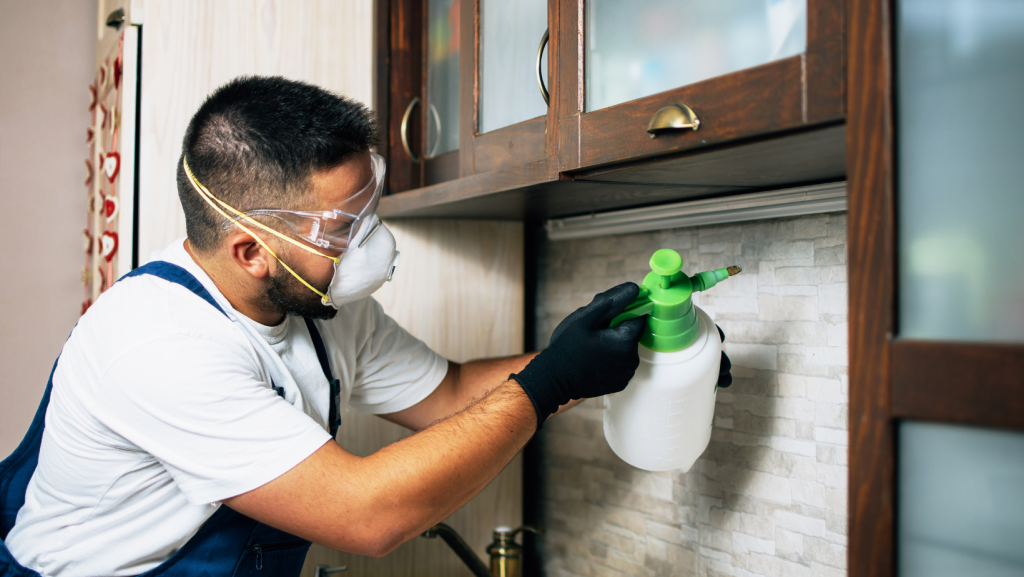
The aims of a pest exterminator and a pest control expert are fairly similar, but the methods used to attain them are extremely different.
While pest control and exterminators share the same objective of eliminating pests from our homes and workplaces, pest control focuses more on long-term, successful, environmentally friendly pest control solutions. However, exterminators use chemicals to kill pests that may only perform temporarily.
Exterminators:
An exterminator’s primary objective is to eradicate pests. However, they do not always solve the root cause of the pest problem.
The exterminators rely exclusively on pesticides to get rid of your infestation. This frequently requires the use of products that are more hazardous than necessary to minimize the condition.
Exterminators usually provide a temporary solution to a possibly long-term problem.
Pest Control:
Pest Control Professionals (PCPs) adopt Integrated Pest Management (IPM) and understand that the key to controlling pests is a long-term treatment.
Using IPM, PCPs can build client relationships. They will advise on how to deter bugs from entering the client’s home.
PCPs, emphasize the importance of conserving the environment by using eco-friendly materials to get rid of rodents. They are applied in a very effective, targeted manner that accomplishes the task.
PCPs utilize compounds that are as effective but less dangerous to humans and pets.
How Often Do You Really Need Pest Control?
When determining how frequently pest control should be performed, tracking pest occurrence throughout the year is best. For a typical house or busy workplace, pest control is necessary every two or three months.
Maintaining a consistent schedule effectively avoids pest problems from occurring and tackles them early. If you have a significant bug infestation, consider monthly treatments for six months.
Each scenario requires a unique solution, taking into account aspects like climate and building size.
Treatment options vary according to the type of bug, and there is always the possibility of a pest infestation. It is true; a major bug infestation will necessitate monthly treatment for up to six months.
If you live in a cold climate location, you will not require frequent pest management. DIY pest control methods are intended to be temporary remedies, not permanent solutions.
A major ant infestation will necessitate three to six monthly visits from a professional pesticide service. Bed bugs are even more distinct from other pests that require specialist treatment until the source is correctly identified.
Preventing cockroaches is distinct, and their control is a long-term effort. Insecticides must be reapplied multiple times to control them. This ensures that the pests and eggs are eliminated.
These infestations depend on various factors, including geography, weather, the severity of the infestation, and much more.
Is Pest Control Safe for Kids and Pets?
Pesticides include hazardous chemicals. It’s simply a matter of selecting one with a low toxicity level. Of course, you must ensure that they are safe for children and pets.
When it comes to getting naturally rid of insects, diatomaceous earth is one of the most widely recognized options. It is also risky for those with weakened or impaired lungs, such as tiny children, the elderly, and those who have asthma.
Unless you are certain of the type of insect you are dealing with, you will almost certainly use a broad-spectrum pesticide with many more harmful chemicals than you require. They are far less effective than a skilled professional.
First, let us take a look at the compounds that we apply. Some pesticides are more harmful than others, so only use certified items with very low toxicity to mammals.
Certain products, such as Deltamethrin, have been reported to be highly poisonous to cats. Therefore, pet-friendly pest treatment must be considered as well. Only a qualified pest control expert will have this knowledge.
Ensure that you follow these guidelines to maintain a safe working environment.
- You can conduct your research or consult with a reputable pest control service. Keep an eye out for pesticides that contain “Signal Words.” In general, the word ‘caution’ refers to the lowest level of toxicity since it might be hazardous when absorbed by the body.
- Ascertain that baits and poisons are kept safe away from minors.
- Take the food from the areas to be treated. Refrigerate them. This is particularly true if you intend to spray pesticides.
- Secure personal property. These include apparel and toys. Ascertain that they are a safe distance away from the treatment area.
- Ensure that pesticides are stored in a safe and secure location that is out of reach of pets and children. Avoid mixing and preparing pesticide solutions with food utensils and similar items.
- If your pets have been treated for lice or similar parasites, ensure that they are completely dry before allowing your children to touch them.
- After the treatment is complete, ensure that everyone, especially children, washes their hands before returning to normal daily activities.
Is Pest Control Worth The Money?

Pests can endanger your home, as well as your family’s health and safety. When you consider how fast and dramatically pests such as mice, rats, and cockroaches breed, the situation will only worsen if you do not adopt proactive control methods.
Whether through appropriate hygiene, organic solutions, do-it-yourself tactics, or professional services, proactive pest control is well worth the effort. Preventive measures can save you money and protect your family.
A pest infestation is serious, and you need to find a solution that works.
Termites cause an estimated $5 billion in property damages each year in the US, which property insurance often does not cover. If you’ve ever experienced a pest problem in your house, you’ll realize that pest control is worth the money.
The following are some of the advantages of hiring a professional pest control company:
1. HEALTH AND SAFETY ARE IMPORTANT –
Most people prioritize their family’s and pets’ health and safety. However, pests transmit pathogens and bacteria that can infect your family and pets. Getting rid of these pests promptly can help reduce exposure and protect your family’s health.
2. EXPERTISE –
Pest control technicians have the knowledge, training, and know-how to deal with various types of pests. In addition, they are familiar with the safe and proper ways for identifying, preventing and eliminating each of these pests and how frequently to use them.
3. INSPECTION –
The efficiency of pest control is maximized by identifying the cause of the problem. If you receive treatment without removing the source of the problem, the problem will reoccur in the future. Regular pest control involves a survey and inspection of the interior and exterior of your property.
The pest control professional can plan a customized pest management plan using cutting-edge products and technology based on their findings.
4. COST –
While there may be an initial expense, the long-term savings associated with experienced pest control services can be significant. In most circumstances, professional extermination is faster and more reliable than DIY. They can also save you money in the long run by recognizing and controlling pest problems early on, so avoiding an expensive infestation and damage in the future.
Is Pest Control Harmful To Humans?
Pesticides are approved for usage in specific environments. The toxicity of the chemicals dictates which pesticides are appropriate and for what purposes they can be used.
To some extent, all pesticides are poisonous. However, at little doses used for pest control, they are not harmful to people. If you are allergic to fumes or chemicals, it is best to stay outside throughout the pest control process.
A licensed pest control organization’s experienced personnel are well-trained and updated on pesticide usage and guidelines. Professional exterminators know what is safe to use in different scenarios compared to chemicals that pose a health concern. Additionally, they can know the maximum amount of pesticide safe to apply in a single application.
This is why homeowners and business owners are urged to contact a professional rather than attempting to deal with infestations on their own. Any chemical may create a risk if not properly used.
The Environmental Protection Agency (EPA) has listed several pesticides that are considered low risk. These are pesticides that cause little or no risk to humans, animals, or the environment.
Pesticides with a low-risk factor frequently contain natural active components such as:
- Citronella essential oil
- Sodium Chloride
- Sodium laurel sulfate
- Thyme
- Lemongrass oil
- Potassium sorbate
The label on a pesticide container should always be followed if in doubt. If it states CAUTION, it means the substance has a low toxicity value. WARNING is a labeling requirement for pesticides with moderate toxicity. Any pesticide labeled DANGER is extremely hazardous.

Do You Really Need Quarterly Pest Control?
Pest control is an endless cycle. Insects like spiders, carpenter ants, fire ants, and roaches can recur on your property after a single treatment.
Quarterly pesticide control significantly decreases the need to apply pesticides routinely to your property. However, the concept of a quarterly pesticide management service that will keep your house safe and help immediately in the event of pest infestations may appear to be a money grab.
A certified professional inspects and treatments your home four times a year, including the initial treatment, as part of a quarterly pest control program. The provider of the pest control service personalizes the treatment strategy to deal with any seasonal pests.
The initial treatment of a quarterly pest control plan entails a comprehensive treatment of your house, both outdoors and inside. Following that, perimeter or external treatments are applied.
When done by a trustworthy provider, it is worth quarterly pesticide control. Unless you are ready to study all preventative measures, maintain them, and are knowledgeable about the finest methods and strategies for pest control in the first place.
Quarterly pest control services vary depending on the industry but generally involve a check for indicators of insect infestation, interior and exterior insect barrier sprays, special treatments around cracks, and removal of bee, wasp, and spider webs.
The advantages of a quarterly pesticide control program include:
- Save money
- It prevents pests and subsequent diseases on your property
- It provides you with peace of mind
How Much Is A Pest Control Service Cost In the USA?
The typical cost of hiring a Pest control service In the USA ranges from $110 to $270. However, pest control costs can vary significantly depending on where you live.
A single visit normally costs between $300 and $550. It requires time to examine the situation, including the entry point for pests and their habitat once inside.
An initial visit is worth $180. As with a one-time appointment, an initial visit To the USA will require some investigative work to ascertain the nature of your pest infestation.
A periodic visit can occur once a month, twice a year, or three times a year. Periodic visits can be quarterly, every three months, semi-monthly, or monthly.
- Costs of pest control monthly: $45 to $50
- Costs of pest control quarterly: $110 to $310
- Costs of semi-monthly pest control: $60 to $70
The size of the property and the severity of infestation are two elements that can influence the service cost.
The costs listed above are for a 1500 sq foot area on average. Additional floor space can increase those prices slightly. Some specialists charge an additional $30 per 1000 square feet above the 1500 square foot limitation.
However, larger infestations will cost more due to the damage and insect types. Discuss it during the inspection.
Should I Clean After Pest Control?
Pest control services never leave a mess on your property; there is no need to mop the area immediately. If you wipe down surfaces that have been treated with chemicals, such as the flooring, you may reduce the effectiveness of the treatment.
The pest control service will inform you when to clean your home and when certain places should be avoided. The perimeter spray is supposed to protect for 30 to 90 days.
You can sweep or vacuum and maintain the property clean, but it is particularly vital to preserving the perimeter area surrounding wall borders, skirting boards, and kickboards, for instance.
While cleaning cupboards and other locations following an exterminator may seem tempting, this can result in the chemicals being rubbed off early, reducing the treatment’s overall effectiveness.
Professionals in pest control utilize many powerful chemicals. The products they use, may cause strong odors and may even be hazardous to your pets.
Can I Get Rid of Pests on My Own?
For some individuals, witnessing a single bug crawl across the floor is sufficient to contact an exterminator. Some opt for DIY pest control before engaging professionals.
There are a variety of do-it-yourself pest control solutions available to you.
- Step 1: Make certain that the pest is correctly identified before treating it.
- Step 2: Determine how pests enter your home.
- Step 3: Choose the best DIY pest control methods.
If you plan to use a commercially manufactured pesticide control product, you’ll find a wide range of options. First, however, make sure to read the label. Pesticides and other compounds are possible alternatives.
Along with cleaning, apply natural pest control strategies to get rid of common household pests. Natural products have no adverse effects and are non-toxic. In addition, organic pest management methods are more cost-effective and provide a long-term solution for pest control.
Other considerations when performing pest control work on your own are reliability, effectiveness, and time. Take precautions to ensure your safety when developing a home remedy or using a pest control product.
Does Rain Affect Pest Control?
Pesticides are unique in that they are scientifically developed to have extended residuals that are effective against insects. In addition, pesticides do not degrade quickly since plants do not absorb them.
Some pest control professionals use insoluble pesticides that will not be washed away by rain; nevertheless, if it has been raining heavily for extended periods and the weather forecast shows that it will only worsen, it is preferable to reschedule the appointment.
- Most pesticides are placed near the foundation around the outside of the home. An overhang structure often covers these spaces, keeping them dry during rain.
- Liquid types of pest control can be formulated with a micro-encapsulated formula, which means they will adhere to the surface on which they are sprayed. They will not be washed away by rain but will decay with time.
- Granular pesticides can benefit actively from rain. When these small pellets enter the soil, they start working. Rain adds moisture to the soil and softens it, allowing the pellets to go deeper into the earth.
- Certain forms of treatments, on the other hand, require moisture to activate. Rain can be extremely beneficial in these situations.
- Rain frequently attracts pests to the surface and forces them out of their burrows, making them more vulnerable to treatment.

